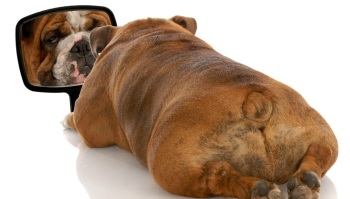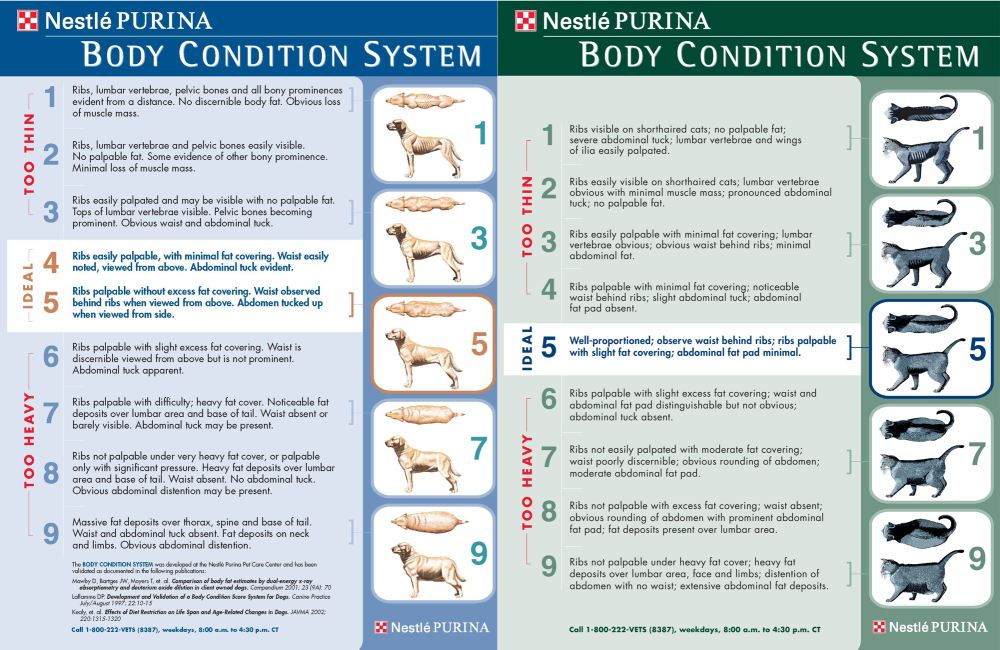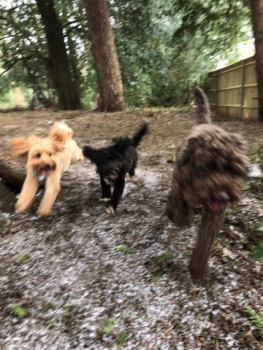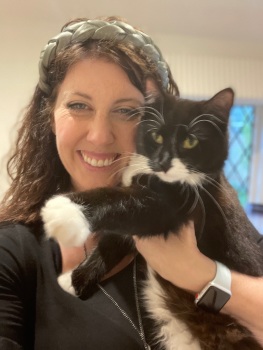Killing them with Kindness
Posted on
 Weight is a sensitive topic. It is now often a taboo subject, and let’s face it, not without good reason as weight comments often make us feel more self conscious and more likely to overeat to make ourselves feel better!
Weight is a sensitive topic. It is now often a taboo subject, and let’s face it, not without good reason as weight comments often make us feel more self conscious and more likely to overeat to make ourselves feel better!
Since starting vet school, I have really started to look at excess weight differently. Far from being an issue that should be avoided to spare feelings, or something we should feel ashamed of, I now think that looking after our body and trying to maintain a healthy weight is essential self-care! Excess weight can increase the risk of diabetes, heart disease, joint pain, sleep apnoea and even cancer. Whilst these are often multifactorial and no one should believe that a good diet alone will prevent them, our health is our greatest asset, and anything we can do to protect it, is definitely worth the effort! Lockdown really made me look at my weight and decide to tackle it – and I’ve been pleased that many other friends have felt the same about their own weight and we’ve clubbed together to motivate each other and share tips!
I have been surprised though, that some people quickly start to comment about weight loss being unhealthy. Highlighting the risks of ‘not losing too much’ or going ‘too far’, often commenting that people who are slim look ill! Our nutritionist lecturer early on highlighted that this is not unique to humans, we often do not perceive overweight animals as overweight, but as healthy! And we see thinner animals as ill, when actually they are of a healthy weight! This is being seen a lot in horses (and it’s a risk factor for laminitis, which can be so severe as to lead to euthanasia) but it is also being increasingly seen in our smaller companion animals too, and poor vets have to find a way to politely explain that Pudsey has put on a few pounds and is now Pudgey.
 I have had conversations with friends after they’ve had these conversations with their vet and I’m often surprised that they are very quick to defend their pet’s weight, minimising the risk and claiming that they don’t want to deprive their pet and make them miserable. And here is the problem – whilst they are saying this because they love their pets and want to make them happy, this attitude is literally killing our pets with kindness. Our pets depend on us to make the right choices for them and sometimes that choice includes doing something that neither pet nor owner likes doing – but that is essential for their long term health, happiness and welfare.
I have had conversations with friends after they’ve had these conversations with their vet and I’m often surprised that they are very quick to defend their pet’s weight, minimising the risk and claiming that they don’t want to deprive their pet and make them miserable. And here is the problem – whilst they are saying this because they love their pets and want to make them happy, this attitude is literally killing our pets with kindness. Our pets depend on us to make the right choices for them and sometimes that choice includes doing something that neither pet nor owner likes doing – but that is essential for their long term health, happiness and welfare.
So if this has struck a cord with you and you think your pet could lose a few pounds - what do you need to do?
- First and foremost, it’s a good idea to check with your vet and ask for advice. This is especially true if you are managing any other health issues, if your animal is still young and growing, or if they are older. Your vet can also show you how to assess your pet’s weight (a body condition score) and therefore keep track of your progress, ensuring you reach a healthy weight and stay there.
- Secondly, there are now lots of low calorie, complete pet foods out there, meaning that your pet does not have to miss out in terms of quantity, this is essential because feeding your dog less than the recommended quantity on the bag of your normal food can lead to your pet missing out on essential nutrients that are added in the correct balance for the portion size recommended.
- Next, consider how you feed your dog. If you just pop it into a bowl, why not make them work for it? Pack it into kongs or puzzle feeders! Or scatter feed kibble in the garden for them to find with their noses!
- Lastly – and assuming your vet is happy with this, get working your pet! There are dozens of exercise disciplines out there for dogs, agility, flyball, hoopers, tracking, retrieving etc. Not only will this help your dog lose weight, but it will also alleviate any grumpiness at the dietary change. I can personally vouch for increased exercise as a strategy for distracting me from feeling ‘deprived’ on a diet!
So please, don’t let your pet’s weight be the next taboo. Love is not turning a blind eye as you top up their food, but in proactively monitoring your pet’s weight, regularly body condition scoring it and working to keep them trim, healthy and happy for life!
If you are a ForPaws client and need some extra help with this, drop me an email! We can always look to connect ForPaws clients going through this, so that they can swap ideas, share tips and maybe even exercise together (in a COVID safe way of course!).

 Is it just me or does it seem absolutely crazy that we have been living with the pandemonium of COVID for over a year now!? As it has been a REALLY long time since I’ve done any business updates for our clients and friends I thought I would let you all know how we’ve been getting on in the recent years.
Is it just me or does it seem absolutely crazy that we have been living with the pandemonium of COVID for over a year now!? As it has been a REALLY long time since I’ve done any business updates for our clients and friends I thought I would let you all know how we’ve been getting on in the recent years. Jo Ellett is mostly now doing group dog walks and the odd cat sit for us. Jo does our group walks and has a great time with the dogs rushing round the Surrey Hills countryside, exploring and playing. Jo is excelling at getting the right match of dogs together on our walks, so that dogs can exercise around other dogs of a similar personality type - this makes walks fun and pleasant for all of them! Jo has been taking lots of video footage of this that I am hoping to compile into a longer video for the website and Facebook page.
Jo Ellett is mostly now doing group dog walks and the odd cat sit for us. Jo does our group walks and has a great time with the dogs rushing round the Surrey Hills countryside, exploring and playing. Jo is excelling at getting the right match of dogs together on our walks, so that dogs can exercise around other dogs of a similar personality type - this makes walks fun and pleasant for all of them! Jo has been taking lots of video footage of this that I am hoping to compile into a longer video for the website and Facebook page. Here’s to summer 2021 and hoping to see you all soon!
Here’s to summer 2021 and hoping to see you all soon!